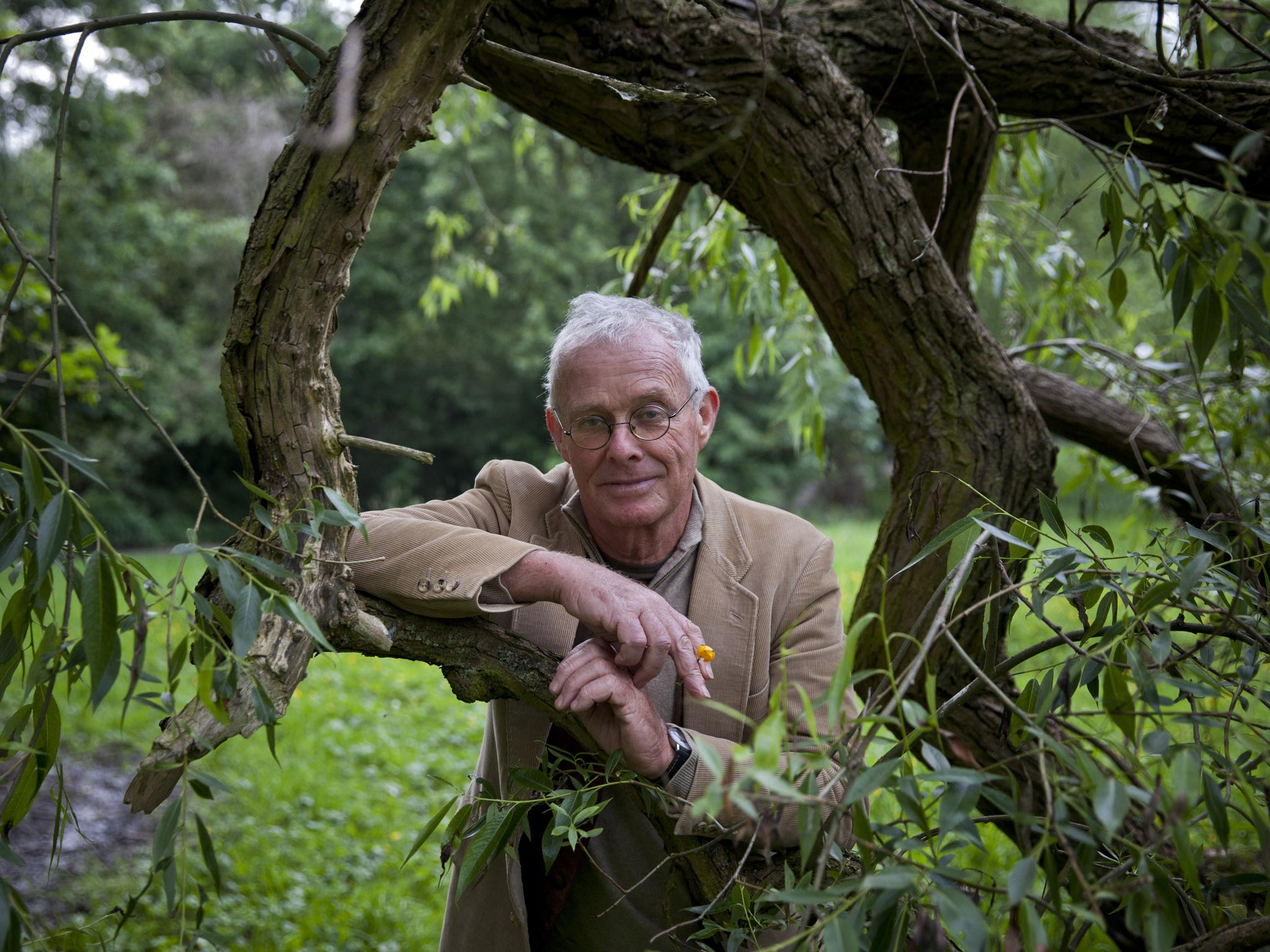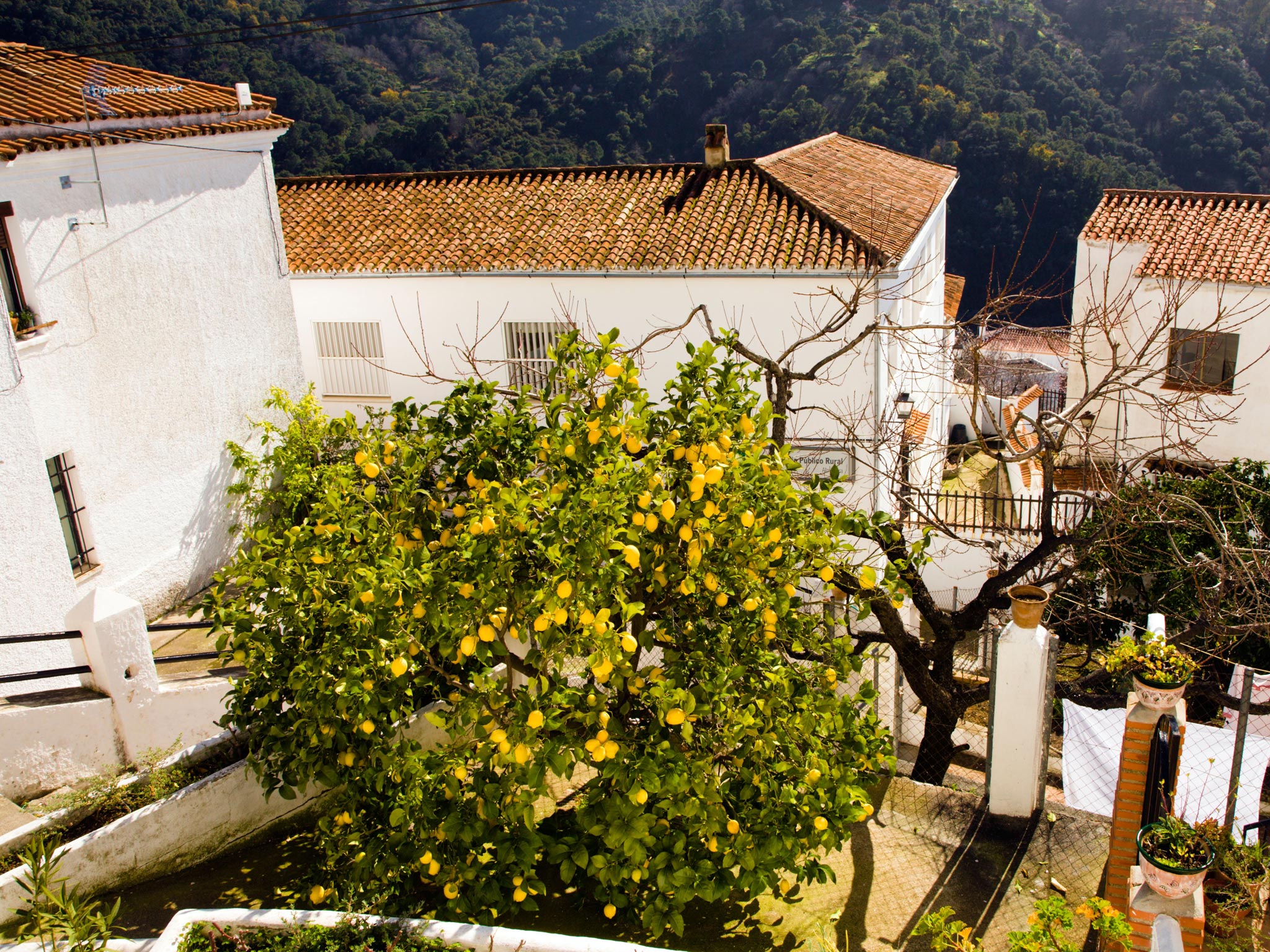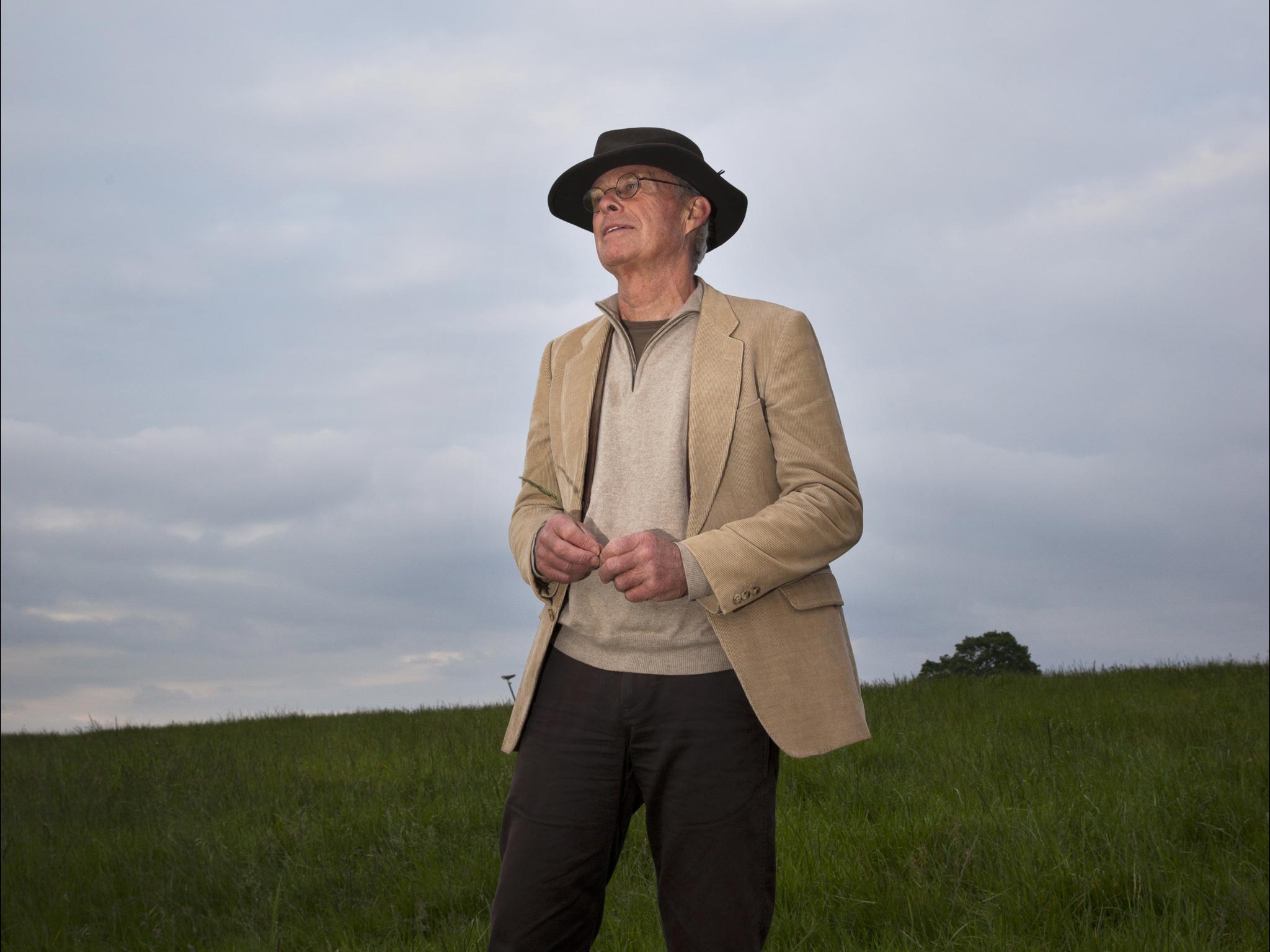Former Genesis drummer Chris Stewart publishes his latest dispatch from Andalusia
It's 15 years since the former international shearer and chronic optimist wrote the bestselling Driving Over Lemons

Your support helps us to tell the story
From reproductive rights to climate change to Big Tech, The Independent is on the ground when the story is developing. Whether it's investigating the financials of Elon Musk's pro-Trump PAC or producing our latest documentary, 'The A Word', which shines a light on the American women fighting for reproductive rights, we know how important it is to parse out the facts from the messaging.
At such a critical moment in US history, we need reporters on the ground. Your donation allows us to keep sending journalists to speak to both sides of the story.
The Independent is trusted by Americans across the entire political spectrum. And unlike many other quality news outlets, we choose not to lock Americans out of our reporting and analysis with paywalls. We believe quality journalism should be available to everyone, paid for by those who can afford it.
Your support makes all the difference.Chris Stewart is crackers about dung. He is the Proust of ovine poo. Give him five minutes to rhapsodise about the quality of crap produced by sheep who've grazed on rosemary or thyme or on almond-tree roots and he'll take an hour. "I love it with a passion," he says, blinking behind his granny glasses. "You know that smell is the most nostalgia-inducing sense? How certain smells transport you even more than music? That's what the smell of sweet sheep shit does for me."
He's equally nuts about the sheep themselves: his books sigh with rapture at the sight of a well-fed, well-tended flock of Merinos or Churras ("with black and white faces, much like a Kerry Hill, but with fine long, almost boucle, fleeces"). And you should hear him on the subject of his beloved Washingtonia orange trees, on whose fruit he gorges straight from the branch ("I can't bring myself to eat an orange if it's been in a bowl even for just one night – it tastes stale").
Stewart is one of nature's enthusiasts. He's also one of her more impulsive handymen. He's also a farmer. The combination of all these has made him a best-selling writer. It's a quarter-century since he spent virtually everything he possessed (about £25,000) to buy a small, primitive farm, on the wrong side of the river, in the mountainous Alpujarra region of Andalucia in southern Spain. He and his wife Ana had driven around the region and idly wondered if they might ever consider living there; but when he thrust the cash into the hands of Pedro Romero within minutes of seeing El Valero, he was going on the purest impulse.
Telling his wife what he'd done wasn't easy. And, almost immediately, awkward questions crowded in: how could he fix a domestic water supply? What to do about locals' plans to flood the valley and build a dam? And what about Pedro, who showed no immediate, or long-term, intention of moving out?
Solving these problems, and transforming this patch of Nowheresville into a sun-drenched idyll took years of back-breaking toil and learning-on-the-job DIY, of helpful neighbours and impossible bureaucrats. It also begat Driving Over Lemons, published in 1999 to loud acclaim and huge sales. Successive books, drawing from the same rich well of rustic anecdote and expatriate self-consciousness, followed in 2002 (A Parrot in the Pepper Tree) and 2006 (The Almond Blossom Appreciation Society), and Last Days of the Bus Club is out this week.
Ever since Robinson Crusoe appeared in 1719, scores of Englishmen have reported back from their journeys to wild regions, which they have successfully tamed or brought to a working simulacrum of home, or claimed as part of their emotional territory. "The travel writer I most revere is Robert Byron, whose The Road to Oxiana is the all-time great travel book," says Stewart when we meet over breakfast beside the BBC. "And Bruce Chatwin, and William Dalrymple – and Peter Mayne, have you ever heard of him? He wrote A Year in Marrakesh. He went there to learn Arabic, and it's the most wonderful, funny, affectionate portrait of a crazy journey and the people he meets on it."

Except for a single consonant, I observed, you could be talking about Peter Mayle and A Year in Provence. Did you read it? "It isn't really my kind of book," he says smilingly. Despite it being about an Englishman who relocates to a sunny part of Europe, takes over an unpromising dwelling and tries to live there, beset by problems of temperature, house repairs and watchful neighbours? "Yeah," says Stewart. "It's a genre I wouldn't read if I didn't write in it."
A lanky charmer with a handsome, weatherbeaten face shaded from the sun by a floppy hat, Stewart is a voluble and engaging talker, full of digressions, jokes, ad-hoc lectures about global warming, nettle soup and the inadvisability of going on TV while under the influence of hashish omelettes. His new book begins and ends with his experience of giving speeches. One is to his daughter Chloe's school about the value of co-educationalism, which the audience of scholars misinterpret as an exhortation to celebrate their bisexuality. Sex rears its head occasionally in the books: one chapter is devoted to the treatment of his inflamed penis by a female faith healer. These bulletins of (mostly) small events and everyday domestic crises have tickled the funny bone of British readers for 15 years, until they feel they know the family of Chris, Ana, Chloe, their dogs and sheep and parrot. As if they lived around the corner.
His books go down a storm in Spain, though they weren't published there until seven years after their success in the UK. "Our life at El Valero is a bit baffling to the Spanish. They're an urban people, but they've all got roots in the countryside. Unlike us, they don't have a romantic, Wordsworthian view of it. Life there was brutish and hard and hateful for them. So when someone goes and makes what seems like an idyllic existence in the mountains, they're surprised. But they say of the books, 'They're great portraits of the countryside as it was when we were there.'"
And, of course, as Bill Bryson discovered when writing about the British, a population loves being told how charming and eccentric they are. "Oh yes! The Spanish are obsessed with how other people see them. They're like a nest of baby birds, waiting to be fed with more information." Is he a media star? Stewart regards me wryly through his granny glasses. "Oh, yeah – I'm a literary colossus there," he deadpans. "I go on talk shows. Believe me, that puts your Spanish in order, appearing on a live chat show where you sink or swim."
Do readers ever come a-calling? "Lots," he says. "They have to park the car by the river, cross the bridge, then walk for 10 minutes. It's a tough 10 minutes, and people who aren't fit arrive in an awful state and blame us for it. Some turn up with cases and want to move in with us. It's happened four or five times. We've had to give them money to catch a bus home."
Are they mostly English? "Yes, but lots of Spanish, too. And weirdos. We had a German guy, a big fat man with a red face who stood dripping sweat, saying, 'Hello! I too haf written ein book. I use goat writer. Tell me, for your books, do you haf goat writer?'"
It must be flattering, though, these pilgrimages? "We've had some very nice people turn up, and I'm flattered when they make the effort. But pilgrimage? You mean I'm a human shrine?"
Stewart was born in Surrey in 1950. His father was a hard act to follow. "He was a pilot in the Second World War, then a charter pilot, flying missionaries about in Africa. Then he ferried bombers home from South Africa to Britain after the war, with [the airline entrepreneur] Freddie Laker as his navigator. He had this fascinating life, and then became a businessman, distributing electronic components. We were really wealthy for a while. We had a swimming pool, an apple orchard and two poodles, in Horsham, West Sussex. But my Dad was a big drinker and gambler and he pissed it against the wall, every penny. Philips bought a controlling interest in the company and bought him out. He went downhill, tried to kill himself, and ended up in the Priory in Roehampton, where all the best people go."
Hadn't Stewart fancied joining the family business? "That was my dad's dream, yeah – but I was a hippie. My academic results were feeble. I was interested only in pop music and girls."

Somehow, during his father's decline, the family scraped together enough money to send Chris to Charterhouse. There, the 16-year-old met Peter Gabriel, Tony Banks and Mike Rutherford, and together formed the first incarnation of the multimillion-record-spinning machine that was Genesis. Stewart's involvement was brief. No sooner had the band's first single, "The Silent Sun", hit the airwaves, and the first publicity shot been snapped (with Stewart pouting moodily beside Peter Gabriel) than he was fired for insufficient grooviness.
He turned from music to literature, devoured the works of Thomas Hardy and acquired a girlfriend who came from Blandford Forum in the heart of Hardy country. The combination of teenage sex and Wessex prompted something deep within the 18-year-old Stewart. "I modelled myself on Gabriel Oak," he says, sheepishly referring to the stalwart farmer-turned-shepherd who romances the headstrong Bathsheba Everdene in Far From the Madding Crowd.
He discovered farming at 21, when he applied for a job as an under-assistant pig farmer in Bramley, near Guildford. It wasn't the most glamorous position available to a former public schoolboy with a romantic streak, but it worked for Stewart. "The first morning hit me like a hammer blow. They had pigs and sheep on the farm. At 7am, I stood in my new wellies in the farmyard under sheeting rain and I loved it all, the smells of the animals, the being outside, the physicality of it, the things you had to do. Someone said, 'Get into one of those tractors and drive around the field', and I felt like the cat that got the cream."
When a gang of shearers arrived that summer, Stewart had another epiphany. "I suddenly knew what I wanted to do with my life – I wanted to be a sheep shearer. It was so graceful, yet tough and demanding, like a dance with an unwilling partner. So I went away with them for the weekend and they taught me how to shear. I made a living out of being a sheep shearer, in Britain, Sweden and Spain, for 30 years."
Stewart goes off into another of his raptures, like Homer Simpson considering beer: "The sheep love electric shears. The beauty of clean white wool purling off pink skin and revealing this naked creature beneath – it's highly erotic."
When the bottom fell out of the shearing business, Stewart ran a sheep farm with Ana Exton, now his wife, near Crawley beside Gatwick airport. They had dismal luck: "The weather was bad, the lambs contracted horrible diseases, we'd borrowed money from the bank and market prices fell, everything was going down the tubes."
Characteristically, he responded to misfortune by travelling to China to co-write the Rough Guide to China. "The only thing I've ever been any good at is learning foreign languages. Chinese seemed an obvious choice – it's the world language that's spoken by most but understood by fewest. I learned it by Linguaphone tapes in the car driving from farm to farm."
After which it was back to Crawley and to the realisation, at 38, that he and Ana might thrive somewhere else – like, say, Spain. A quarter-century later, he's a happy and successful farmer-writer, and a kind of existentialist paradigm. "I don't think there's anything better you can do in the middle of your life," he said in a recent interview, "than to pick it up and shake it around a bit, do something different, live somewhere different, talk another language."
'Last Days of the Bus Club', by Chris Stewart (Sort of Books, £8.99) is out now. To buy it for £8.54 free P&P, call 01326 569444 or go to independentbooksdirect.co.uk
Join our commenting forum
Join thought-provoking conversations, follow other Independent readers and see their replies
Comments